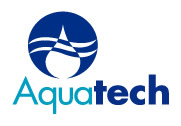Breaking into foreign markets can be a risky business proposition, requiring substantial financial backing. For a small company, guaranteed loans can make the difference in winning major international projects.
In the past two years, Aquatech International Corp., based in Canonsburg, Pa., has won major contracts to build wastewater recycling facilities in Italy and Oman worth a combined $175 million with the backing of the US Export-Import Bank (Ex-Im). In 2006, Ex-Im insured a $25 million working capital loan from PNC Bank to Aquatech to support a contract with ENEL, Italy’s largest energy company. A separate loan guaranteed $23 million to finance a produced water treatment project in Oman.
With subsidiaries in the United Arab Emirates, China, and India, Aquatech has an aggressive international business strategy, said Anant Upadhyaya, the company’s senior vice president of corporate growth. “Our global effort and reach has been extremely aggressive, and Ex-Im Bank has come forward in helping us secure financing,” he said.
The Ex-Im Bank’s Environmental Exports program provides working capital guarantees to help small and medium-sized businesses access funds for purchasing raw materials, cover overhead expenses, and cover bid and performance bonds. The program also provides enhanced support for environmental projects, including wastewater treatment and recycling, through capitalization of interest and maximum repayment terms.
For a company like Aquatech, Ex-Im support has enormous impact because it brings credibility, Upadhyaya said. “The bankers themselves are very conservative, and Uncle Sam is particularly conservative, so that shows that this is a solid company,” he said. “We’re very consistent and very stable. As we go forward, we will engage more and more with public agencies.”
Sustainable Growth
At Aquatech’s headquarters outside Pittsburgh, the company is adding two floors to accommodate its design group and a state-of-the art conference room with videoconferencing capabilities. It’s a sign of the company’s focus on growing from a $100 million company today to a $500 million company in the near term.
The company is in final stages of developing a three-year strategic plan that will focus on sustainable growth, Upadhyaya said, capitalizing on the global shift to more environmentally sustainable technologies.
The emphasis on sustainability is more advanced in Europe, where Aquatech won a $75 million contract with ENEL to provide wastewater recycling at five coal-fired power plants, but the company has also won similar contracts in the US, including one for a Kansas City power company and one for a utility in Illinois. In coal-fired power plants, wastewater is generated by a process known as flue gas desulfurization (FGD), which “scrubs” sulfur dioxide from gases before they are released into the atmosphere.
Currently, less than 5% of all wastewater is recycled worldwide. This is an enormous opportunity for growth for Aquatech, and the company intends to generate 20% to 25% of its business from wastewater recycling, employing their zero liquid discharge technology.
Upadhyaya leads a team of researchers and engineers he calls the A Team in developing differentiated technology that will allow the company to patent new processes and provide comprehensive services for its clients. “The objective is to scour all of the knowledge that is available, internally and externally, on each unit process,” he said.
By modifying and combining conventional technologies, Aquatech can offer solutions to treat wastewater for reuse that would otherwise become an environmental liability. “We are passionately embracing this zero-liquid discharge ideology,” Upadhyaya said. “We are looking at noxious wastewaters that people have been afraid to treat. We want to demonstrate that you can not only tame these wastewaters but also recover pure water from them.”
Aquatech’s strategy of providing new technology solutions depends on developing its own patents as well as negotiating shared rights with the developers of technologies such as membrane reactors. By developing specific applications for these inventions, Aquatech can share rights and own joint patents for such applications. “We will own any intellectual property developed by us that we believe is going to be proprietary and is possible to be patented,” Upadhyaya said.
The A Team is focused on solutions, not just products. “The path for the future is dependent on differentiated technologies,” he said. “We are likely to stay out of low-tech areas where we don’t get the recognition we deserve. It’s very unlikely that we will go on a cookie-cutter product line or even market support. The down-and-dirty types of markets do not match our mentality.”
Impact Awareness
In helping other companies become more sustainable in their water use, Aquatech is also aware of its own responsibility to work in a sustainable way. For example, in the area of desalination, the company is looking to develop alternative energy sources, such as solar power for energizing Aquatech’s desalination technology.
“If the water industry contributes to carbon-dioxide or greenhouse gas emissions, then we need to come up with pathways that are going to minimize such impact,” Upadhyaya said. “Going forward, the water industry has to demonstrate that the technological pathways we are choosing are sustainable.”
Aquatech plans to develop centers of excellence around the world for researching different areas of wastewater reuse, recycling, water treatment, and desalination. “We are going to divide our approach from a technology standpoint where we can reside all the knowledge at a center of excellence where it’s close to the market,” Upadhyaya said.
Upadhyaya is always looking for ways to expand internationally and at home. “Growth is going to come internally as well as externally,” he said. “Our radars are tuned in on external growth by virtue of acquisitions or alliances as well.”

